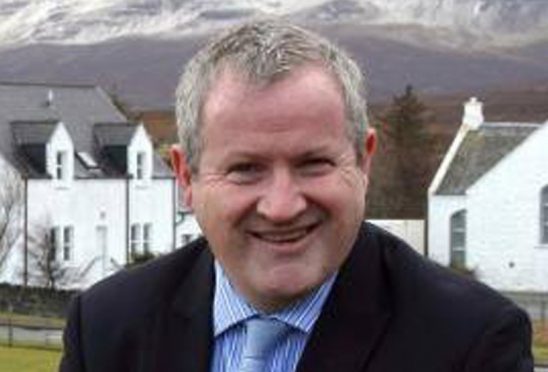SNP Westminster leader Ian Blackford has warned Theresa May not to go down the “very, very dangerous road” of ignoring the Scottish Government’s call for a seat at the Brexit negotiating table.
The Highland MP, who has replaced ousted Angus Robertson in the role, insisted the prime minister had to listen to the “democratically elected voices of the other parliaments in the UK”.
He also claimed the £1billion deal with the Democratic Unionists to prop up the Tory leader’s minority administration – which will not result in any additional money for Scotland – “undermined the Union”, by pitting one part against the others.
The SNP has repeatedly made clear it should have a direct role in the EU withdrawal negotiations, while the UK Government insists the referendum was a UK franchise and that the talks will be undertaken as a UK.
Last week, Environment Secretary Michael Gove rejected the nationalists’ idea as a non-starter, adding: “It can’t and doesn’t work that way.”
Asked how the Scottish Government would proceed in light of this stance, Mr Blackford said the two administrations needed to meet urgently for discussions.
Pressed on what steps would be taken if the proposal is simply disregarded, he added: “I think that would demonstrate we have a prime minister that is not listening.”
He told the Press and Journal: “On the basis that she has a minority, I think that would be a very, very dangerous road to go down.
“I actually don’t think it would help them in their relationship with their new friends in the DUP because this is not just about Scotland – it’s about Wales and Northern Ireland being showed respect as well.
“So I think the prime minister has got to be very, very careful and I think she would be sending completely the wrong signal if she’s not prepared to listen to the democratically elected voices of the other parliaments in the UK.”
Brexit Secretary David Davis has confirmed the repeal bill, to convert EU law into UK law, will require a legislative consent motion at Holyrood.
This is not a veto as it can be overridden, but a refusal to take on board a vote of the Scottish Parliament – if it refused permission – would likely cause a disruptive constitutional crisis.
Asked how far he and his colleagues would be willing to go, Mr Blackford replied: “We are not threatening anybody. We will defend our interests if we need to do so, but we are trying to make sure that we get to a situation where we can work together for mutual benefit.”
Addressing the issue at Prime Minister’s Questions yesterday, Mrs May said her government had been working with Scottish ministers throughout the process and would continue to do so.
